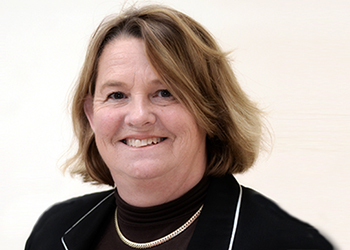Dean of Law appointed for second term as acting judge in the Free State High Court

Prof Caroline Nicholson, Dean of the Faculty of Law
The Dean of the Faculty of Law, Prof Caroline Nicholson, has been re-appointed by the Judge President of the Free State High Court, Judge Mahube Molemela, to serve a full term in 2017 as an acting judge. This will be her second term, as she served in the same position in early 2016, and it is such, a testament to her outstanding work. Her re-appointment is a source of pride not only to the University of the Free State, but the city of Bloemfontein, and the region as a whole.
Since taking up the position of Dean in 2015, Prof Nicholson has demonstrated exceptional leadership, and continues to take great strides in developing the Faculty’s internal and external programmes. “I am delighted that the University has facilitated my taking advantage of this opportunity. During this term, I will be exposed to a diversity of legal matters both civil and criminal, some of which I was not exposed to during my previous acting period. The exposure to the practical aspects of the law from the perspective of the Bench will inform my decisions regarding curriculum review and development, at a time when the faculty is actively engaged in ensuring that curriculum content is both relevant and context-appropriate,” said Prof Nicholson.
She adds that her appointment as acting judge will strengthen the Faculty’s positive relationship with the legal profession and, especially with the Bench. It will also benefit the Faculty, its staff and students. In 2015, the Faculty partnered with the International Association of Women Judges (Free State Chapter), to host a dinner, which will be hosted again this month. The association brought to the fore new ventures into the involvement of women judges in an advisory capacity and sharing of expertise. In 2016, members of the association began to enact this role.
Judge Molemela and Judge Azhar Cachalia of the Supreme Court of Appeal accepted appointments to the Advisory Board of the Free State Centre for Human Rights. Judge Khalipi “Jake” Moloi of the Free State High Court in Bloemfontein, gave trial advocacy tips to teachers, coaching the Schools Moot Court Competition. Prof Nicholson said: “It is hoped that more opportunities will arise to increase interaction between students and the judiciary, both are eager for this to happen. I am also learning a great deal and am once again enjoying the collegial and supportive environment that my colleagues create at the High Court.”
Prof Nicholson holds an LLD from University of South Africa, and has published several research articles in accredited journals, with a special interest in Family Law and children’s rights.